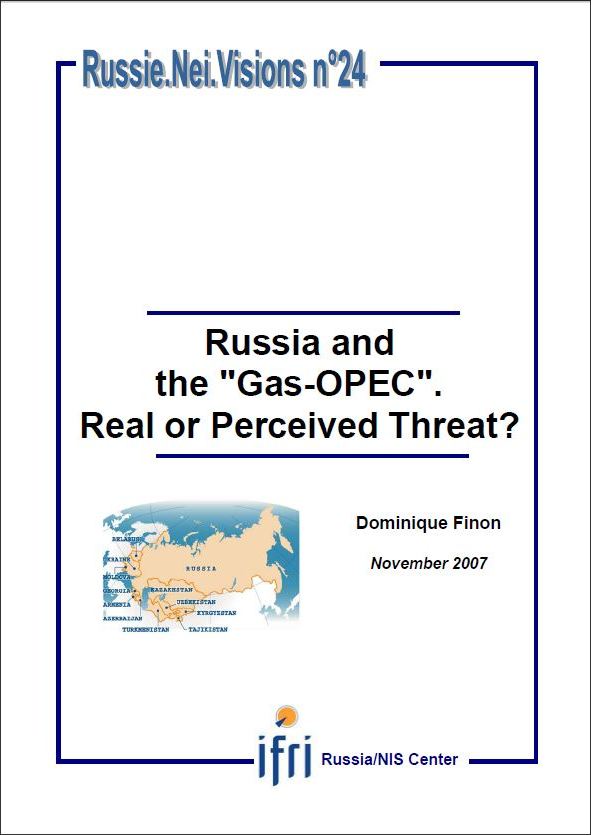Russia and the "Gas-OPEC". Real or Perceived Threat?

The threat of a gas-OPEC, waved around by certain big producers, has given rise to much fear in consuming countries. The behavior of Russia, a key exporter, has made it seem as though gas sales could be used as a political weapon. In truth, the creation of an entente between exporting countries is not technically feasible. What is more, Russia remains reticent to join any association in order not to limit its room for maneuver. Seeking to dominate the world market, it has singed a certain number of agreements with other big producers. Nevertheless, the capitalistic constraints of the gas market jeopardize the chances of long-term coordination, which is incompatible with short-term political interests.
Download the full analysis
This page contains only a summary of our work. If you would like to have access to all the information from our research on the subject, you can download the full version in PDF format.
Russia and the "Gas-OPEC". Real or Perceived Threat?
Related centers and programs
Discover our other research centers and programsFind out more
Discover all our analysesThe Caspian Sea as an Emerging Energy Hub : Potentials and Limitations
This report analyzes the prospects of the Caspian Sea region — and its key actors except for Russia and Iran — becoming an important energy hub serving the needs of the European Union (EU).
The European Union's Strategic Test in Georgia
The political crisis brewing in Georgia is of an existential nature for the country. What is at stake is Georgia's future as a democratic and sovereign European nation (EU).
Commanders of Putin's Long War: Purged, Reshuffled and Disgruntled
The trend of reshuffling the Russian top military command in the course of a fast-evolving and far from successful war has progressed unevenly both across the Armed Forces’ structures and in time. The rationale for and timing of the abrupt cadre decisions made by Commander-in-Chief Putin often defy logical explanation, and the rare official clarifications are no more informative than the usual information blackout.
Russian Military Manpower After Two and a Half Years of War in Ukraine
In addition to a military victory in Ukraine, the Russian leadership is planning to build up sizable troop formations for a possible conflict with NATO in the Baltic region and the Kola Peninsula. In particular, current plans aim for the military manpower to grow by about 350,000, reaching a total of 1.5 million soldiers and commanders. In the context of the current conflict in Ukraine, this cannot be accomplished without a new wave of mass mobilization.









